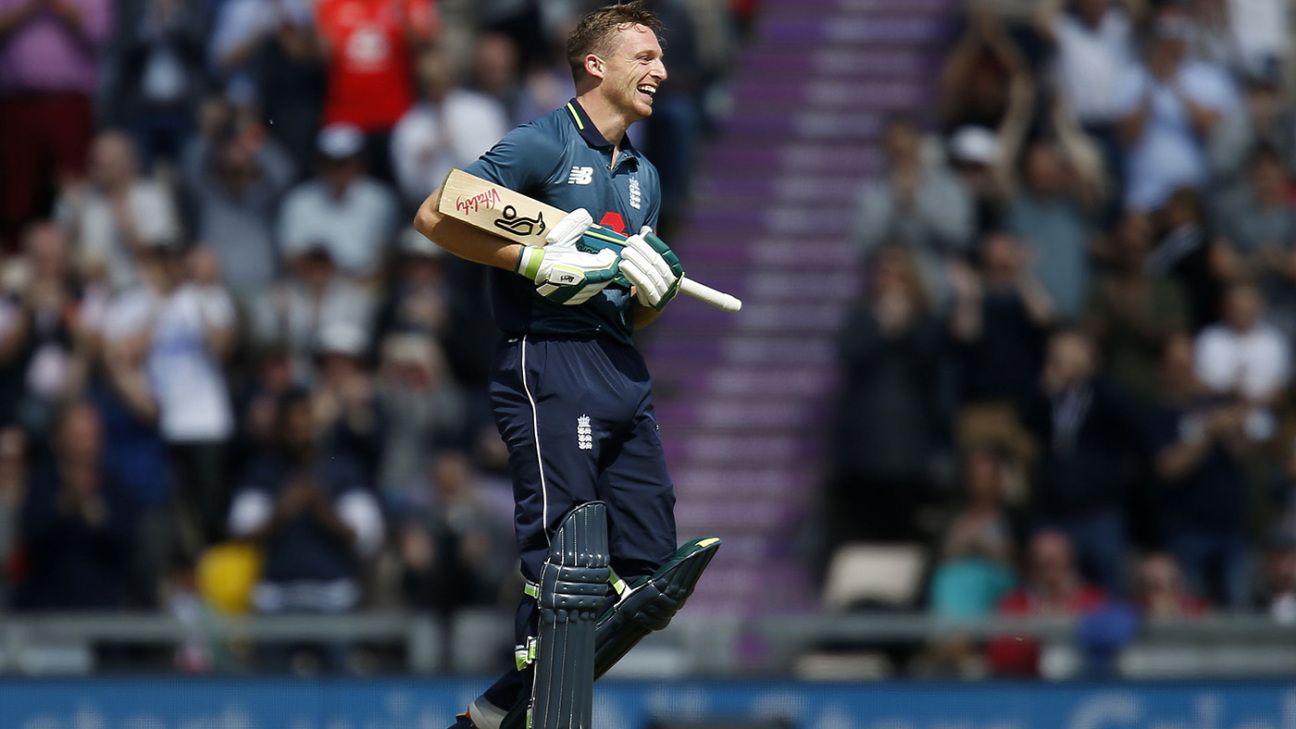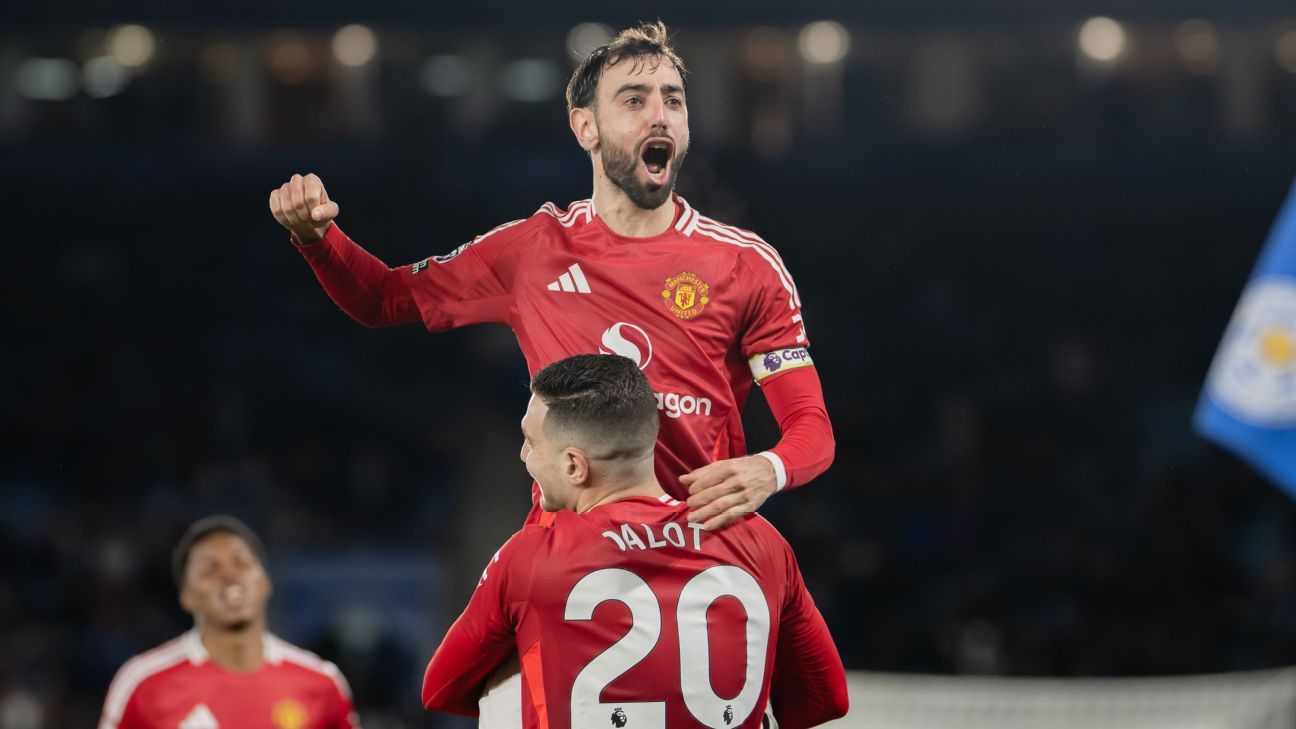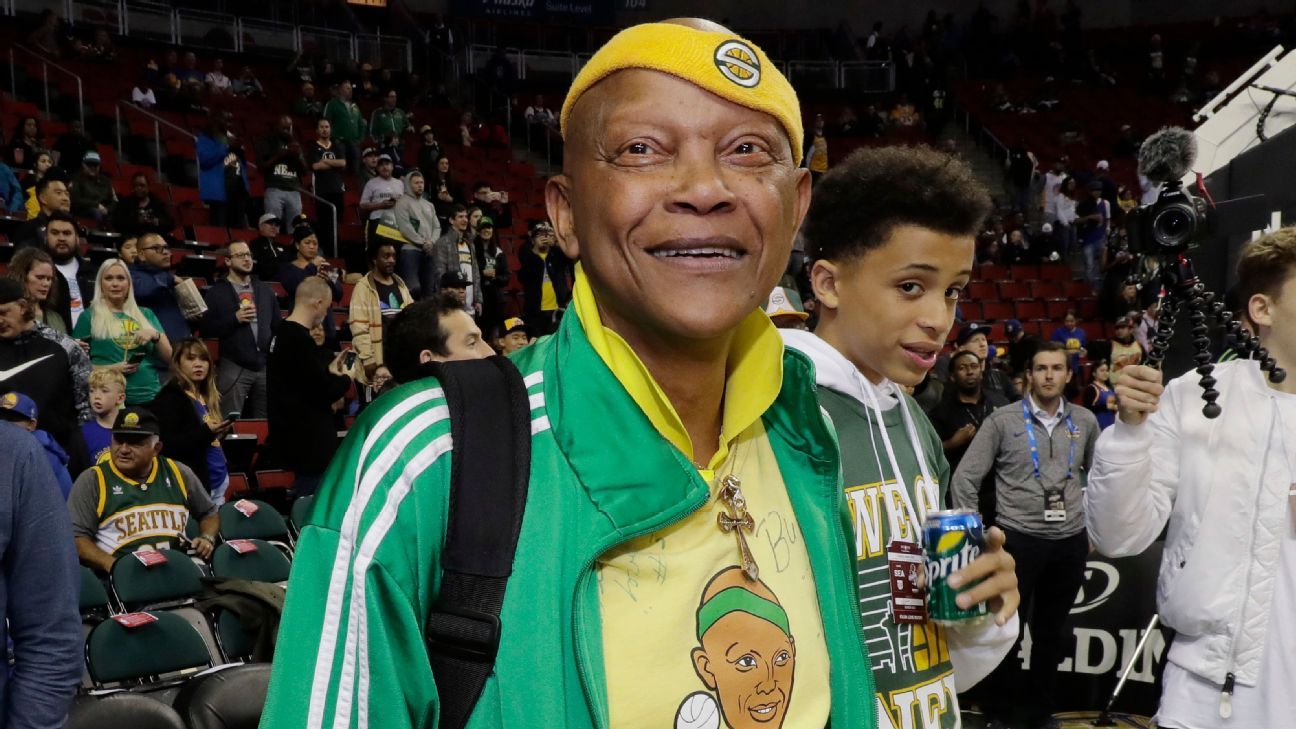
Eoin Morgan praised Jos Buttler as "the difference between the teams" as England won a run-drenched match at the Ageas Bowl.
Buttler thrashed a 50-ball century - the 10th quickest in the history of ODI cricket - to help England to their seventh-highest total in this format of the game.
England plundered 74 from the final five overs of their innings (and 101 from the final eight) to register their 14th score in excess of 350 in 85 innings since the 2015 World Cup. To put that in perspective, they had made 350 twice in 640 innings before that tournament. Despite Pakistan achieving their highest ever second-innings score in ODI cricket - their coach, Mickey Arthur referred to it as a "valiant" chase - England held on to win by 12 runs.
Buttler has never broken into the top 10 of the ODI batting rankings but, in form like this, you wonder if England would swap him for anyone. So much time does he have, so quick are his hands, so wide his range of strokes, that he can make bowlers look utterly impotent. Pakistan attempted yorkers, bouncers, width and to cramp him, but to no avail with Arthur admitting he wasn't sure what the answer was.
"I don't know how you bowl to him," he said after the game. "I've just asked the bowlers the same thing and they didn't have an answer either. But I don't think we're going to stop him, so we've got to try to get him out."
Morgan, who added 162 in 14.5 overs with Buttler, agreed. "He seems to have a gear that not many of us have," he said. "I was in prime position to see the whole innings and his freakish knocks seem to be getting closer and closer together, so that's a good sign for us moving forward. He was brilliant and the difference in the two teams. We are very fortunate to have him in our side."
Indeed they are. And while few will remember the outcome of this series in years to come - we are, in reality, already in World Cup warm-up territory - it's hard to avoid the sense that Buttler could be on the verge of something quite special. For it is global tournaments that define reputations and, at 28 years old, he is about to stride across the biggest stage of all in his home nation. He does so imbued with the confidence of succeeding in the IPL and in the international game, and relaxed and happy on and off the pitch - on reaching his hundred, he celebrated by rocking his bat, in tribute to his new-born daughter, Georgia.
"I'm maturing age-wise as well," Buttler told Sky Sports afterwards. "I've learned a lot about myself and what works for me. I just think I've had some great experiences in the last few years which you can always use [in any given situation]."
He is already, arguably at least, the best white-ball batsman England have ever had and, as he crashed six after six into the stands against Pakistan, you could be forgiven for wondering if he was on the brink of entering an altogether more exclusive league of destroyers: a league populated by the likes of Viv Richards and AB de Villiers.
If that sounds hyperbolic, it is worth reflecting on some statistics. Buttler has now hit five of England's 10 quickest (in terms of balls faced) ODI centuries - including the quickest two - and averages 69.50 deliveries in reaching his eight ODI centuries. Nobody else (with at least eight ODI centuries) averages better than de Villiers' 81.90 balls. Buttler also averages 51.55 (at a strike-rate of 125.46) since the 2015 World Cup and, according to CricViz, scores at a rate of 181.20 in the last 10 overs since that tournament. The next highest (of players who have scored at least 500 runs) is Glenn Maxwell, at 160.55. In conditions like this, where the bowlers have nothing to work with, he represents a daunting proposition for the fielding side.
But, amid the carnage, David Willey emerged with credit. When he returned to the attack, Pakistan had six wickets in hand and required 69 from the final seven overs. For perhaps the first time, they were favourites. But so accurately did Willey bowl his wide yorkers, so well did he execute England's short-ball plan of attack against the left-handers (and Imad Wasim, in particular) that he conceded only 17 runs from his final three overs and picked up two important wickets.
It was a definitive moment in this match and may well be enough to secure Willey's World Cup place. On the sort of surface that could drive bowlers to despair - only once has an ODI in England (or Wales) resulted in a higher aggregate of runs - his economy rate of 5.70 runs per over was outstanding; apart from Haris Sohail, who delivered only three overs, every other bowler conceded more than a run a ball.
"He bowled beautifully," Morgan said. "He normally bowls a couple more overs up front when it swings a bit more but today it didn't actually swing for more than six or seven balls.
"In the last four years, Willey and Liam Plunkett in particular have reacted when they have been put under pressure. You ask them to do more and they respond really well. They probably don't get the praise that they should.
"But I thought that all of the bowlers, including Dave, were brilliant, because they reacted really well. It was a belting wicket and probably got better as the day went on.
"All the bowlers are all pushing each other. It's like our batting unit in the last two or three years. Unfortunately, a couple of guys will miss out and it will be a tough decision because of what they have contributed over a long period of time."
Morgan denied the suggestion that, at some stages of the Pakistan innings, he wished he could call upon Jofra Archer, who was rested from this game. But he could have been forgiven if he did wish for him or Mark Wood. For even without playing, Archer's reputation seemed to improve.
He has only taken two ODI wickets but, as England's bowlers were thrashed around the Ageas Bowl, it was tempting to conclude that it was Archer they were missing the most: the pace, the bite, the incisiveness he adds. Without him they looked, at times, to have no answer to Pakistan's batting here.
It may well be a simplistic conclusion, though. This match was played on the flattest of surfaces that offered little to bowlers of any description. There is no guarantee that Archer, for all his promise and skill, would have fared any better. One of the great truisms of the game is that players' reputations often improve in their absence.
Whether Archer's emergence or Willey's excellence drags Chris Woakes back into the selection mix remains to be seen. But since the start of the Caribbean series, Woakes has bowled in four ODIs and claimed two wickets at a cost of 119 apiece, conceding 7.93 an over in the process. Tom Curran and Plunkett are probably more vulnerable, but Woakes still seems to be struggling to recover the pace or confidence he enjoyed for so long. Joe Denly might feel he was fortunate to miss bowling in this game. It remains remarkable that he is on the brink of going into a World Cup campaign as a spin-bowling all-rounder, having claimed one ODI wicket this decade. And that came from a wide.
There may be some concerns over Wood, too. It is now more than two months since he bowled a ball in anger and it seems unlikely he will play in Bristol, either. While the England management insist there is no serious problem, his history of ankle problems mean some question marks linger.
At full strength, England will find room for Wood and Archer. As Arthur suggested, on these surfaces - and there will probably be some very flat surfaces during the World Cup - it is essential to take wickets to contain batting units to manageable totals. England need the bite those two provide. They can't always rely on miracles from Buttler to save them.















 Phone: (800) 737. 6040
Phone: (800) 737. 6040 Fax: (800) 825 5558
Fax: (800) 825 5558 Website:
Website:  Email:
Email: 






